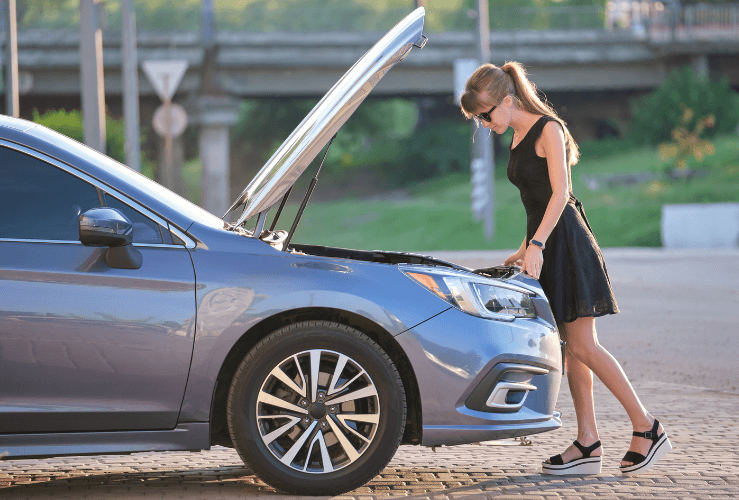Odd sounds from the wheels or under the bonnet could mean your vehicle needs the attention of a mechanic.
Has your car started making unusual noises? It's important not to ignore rattling, knocking, squealing, and hissing - because these are warning signs that something is not right.
Such sounds seldom, if ever, go away by themselves. Addressing problems early could save you time, money and hassle later on. It will also eliminate that low-level nagging stress, giving you peace of mind as you drive.
Get clued up on what each noise might mean by reading on...

Knocking Sound from the Engine
This could be caused by:
- Faults with connecting rods or bearings.
- Worn piston rings (which can damage the valves); you'll notice a metallic noise that changes in pitch as speed increases.
- Low oil: check your dipstick regularly. Aim to replace oil every 3,000 miles, or as instructed by your car's handbook.
Rattling
There are several possible causes of rattling noises in a car. These include:
- Loose/worn timing belt - these will eventually succumb to wear and tear and will need to be replaced periodically. A rattling, ticking, or clicking sound may occur when the belt wears out, causing the engine cylinders to open and close out of sync.
- Misfiring engine - this causes a rattling noise when the combustion process is disrupted. Spark plug issues and fuel delivery problems are common root causes.
- Low oil - this can make engine components rub against each other, resulting in a rattling or ticking noise. Top up your oil and see if this fixes the problem. Note that running your car with low oil for long periods could cause serious damage to your engine's components.
- Timing chain or tensioner problems - if the timing chain or its tensioner are faulty, then a rattling noise will be heard. Note that some cars use timing chains instead of timing belts.
Squealing
Squealing or screeching sounds can be triggered by a wide array of faults. These include:
- Worn brake pads
- Brake pads or rotors that are dirty or suffering from moisture build-up
- Suspension problems
- Cam belt fault (squealing may be accompanied by ticking/rattling from the engine)
- Metallic brake pads
- Faulty alternator (squealing belt)
- Tyres (over- or under-inflation)
- Power steering (low power steering fluid, failing pump, or loose belt)
- Power steering belt (slips when the wheel is turned)
- Wheel bearings (these reduce friction between wheel and axle but can squeal when worn out)
- Water pump pulley
Popping or Snapping When You Turn
This can occur if you have front-wheel drive or all-wheel-drive. It could mean your constant velocity (CV) joints on the front axle need replacing.
A Sound Like a Coin in a Washing Machine/Dryer
This could be a loose lug nut inside your hub cap. Get it checked out as soon as you can.
Rhythmic Squeaking that Increases with Speed
This can happen in rear-wheel or front-wheel-drive vehicles when the universal joint (U-joint) develops a fault. Have it checked over by a mechanic.
Whining/Howling
This often occurs due to damaged bearings - the small steel balls that help your vehicle components move without friction.
It's probably your front-wheel bearings if you hear the howling when you turn. It's likely your rear bearings if you hear the sound when you accelerate.
Hissing Noise
This is often caused by a leak in the coolant system, particularly the connecting hoses or vacuum lines.
These hoses are made of highly durable, flexible rubber, but over time they deteriorate due to high-pressure coolants being pumped through them, as well as the high temperatures they must withstand.
If you believe your coolant system hoses are faulty, it's important to have them checked over by a trained mechanic. Indeed, any ongoing hissing should be checked over.
You may also hear a hissing sound from your AC unit. This is also likely to be a leak in the refrigerant (coolant) lines.




